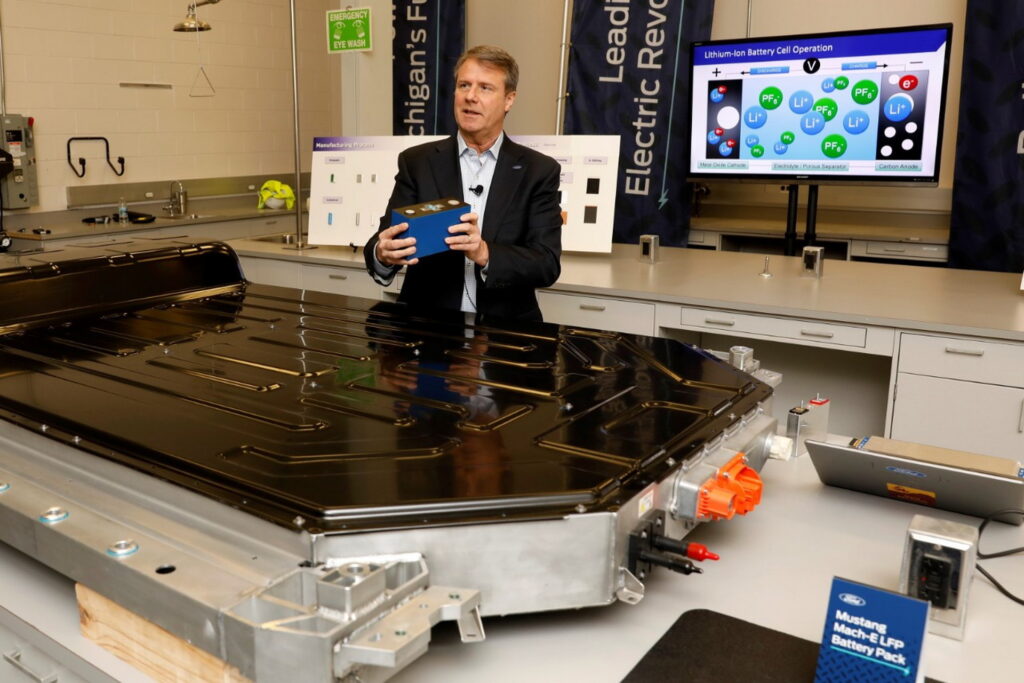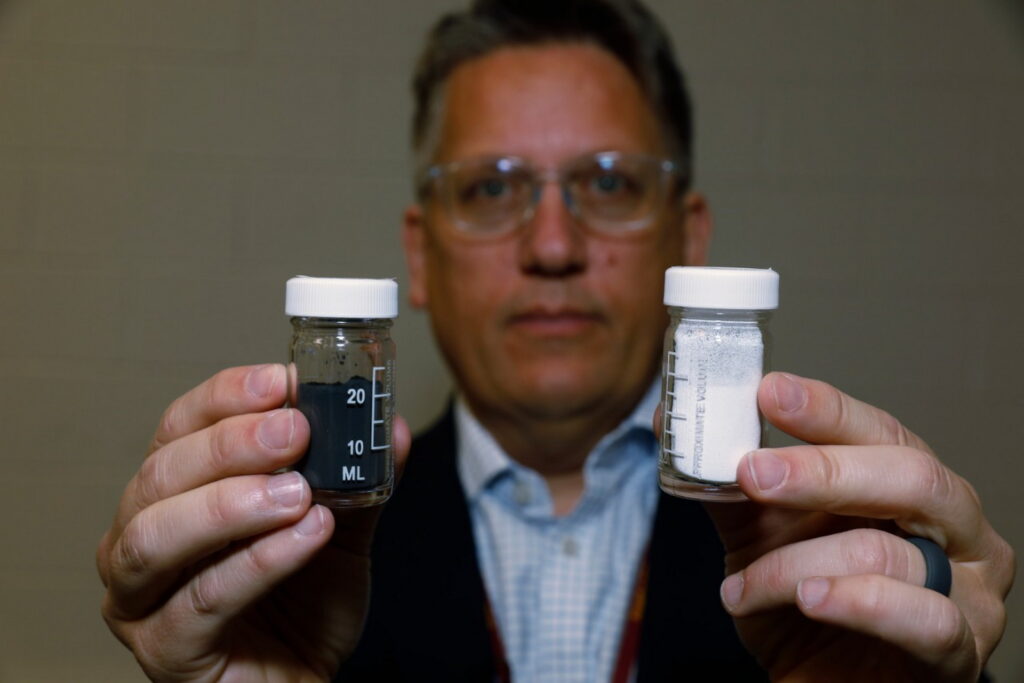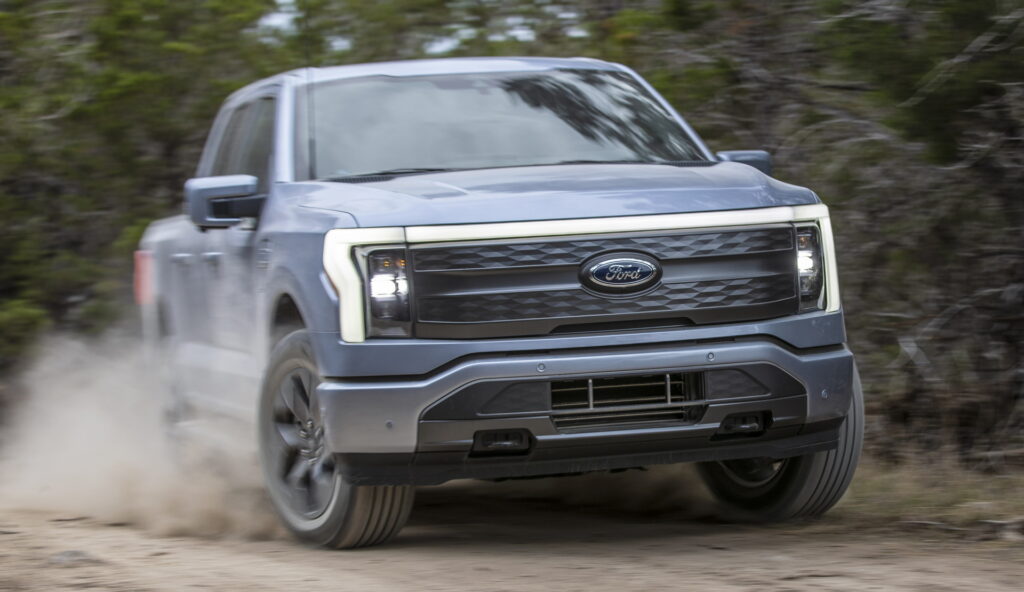The Ford Mustang Mach-E and Ford F-150 Lightning will soon be available with battery packs using different chemistries in a move that could broaden the appeal of the two models.
The car manufacturer’s current EVs come standard with batteries using a nickel cobalt manganese chemistry. However, in the coming months, the Mustang Mach-E will also be offered with a battery pack using lithium iron phosphate chemistry, a technology that will also be introduced to the F-150 Lightning range next year.
Auto News notes that the Mustang Mach-E and F-150 Lightning will be offered with standard-range and extended-range batteries. The standard-range models will use lithium iron phosphate batteries because they are cheaper, more durable, and can be recharged more quickly. Meanwhile, the extended-range models will use nickel cobalt manganese batteries because they offer long range and are more energy-dense.
Read: Ford Ramps Up EV Production In North America After Strong Demand

Lithium iron phosphate batteries are 30 to 40 per cent cheaper than nickel cobalt manganese batteries, according to principal analyst with Guidehouse Insights, Sam Abuelsamid, primarily because there are abundant supplies of iron and phosphorous. Abuelsamid added that while lithium iron phosphate batteries don’t offer as much range, they can be recharged more quickly, making them appealing to car owners that don’t need a long-range EV.
“Not every EV needs to have a 500- or 600-mile range,” he told Auto News. “There’s a lot of applications where having 150 to 200 miles of range is more than adequate.”
Supplying Ford with its new lithium iron phosphate batteries will be China’s Contemporary Amperex Technology Co. Ford will ultimately establish a $3.5 billion plant in Marshall, Michigan where it will use CATL’s technology to produce the lithium iron phosphate batteries.
“Ford’s electric vehicle lineup has generated huge demand,” Ford chief executive Jim Farley said in a recent statement. “To get as many Ford EVs to customers as possible, we’re the first automaker to commit to build both NCM and LFP batteries in the United States. We’re delivering on our commitments as we scale LFP and NCM batteries and thousands, and soon millions, of customers will begin to reap the benefits of Ford EVs with cutting-edge, durable battery technologies that are growing more affordable over time.”




